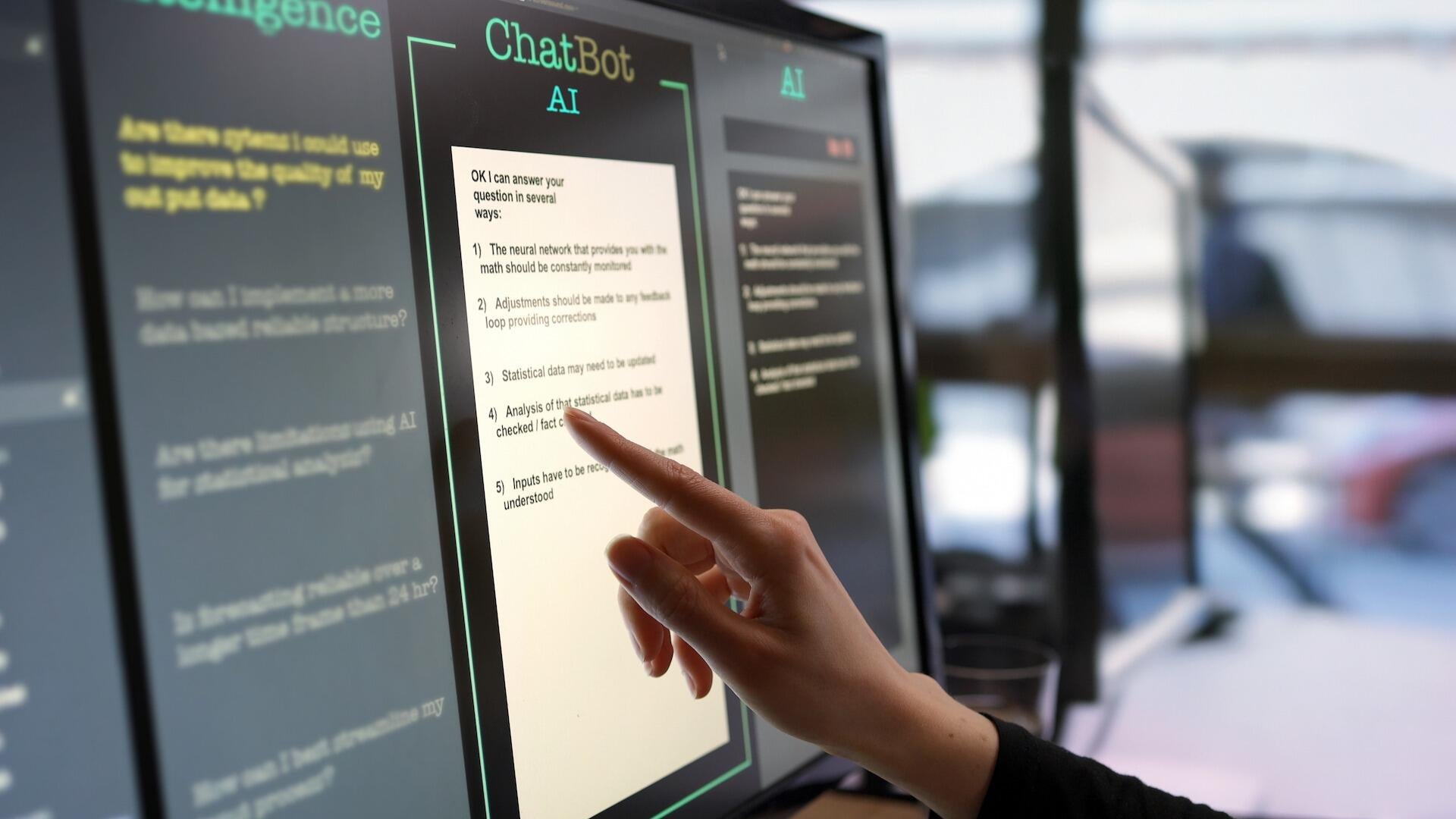Finally.
In a world full of collegiate crazy classes, people have woken up to real life.
Work hard, do good things, make a living.
AI can't turn a wrench, but it can replace middle management.

 www.cbsnews.com
www.cbsnews.com

 Jacob Palmer, 23, said his company, Palmer Electrical, is on track to generate more than $150,000 in revenue this year. Courtesy of Jacob Palmer
Jacob Palmer, 23, said his company, Palmer Electrical, is on track to generate more than $150,000 in revenue this year. Courtesy of Jacob Palmer
In a world full of collegiate crazy classes, people have woken up to real life.
Work hard, do good things, make a living.
AI can't turn a wrench, but it can replace middle management.

As AI threatens white-collar work, more young Americans choose blue-collar careers
"I am very happy doing what I am doing," says one young electrician who pursued a skilled trade as AI disrupts the job market for college grads.
As AI threatens white-collar work, more young Americans choose blue-collar careers
By Megan Cerullo
Updated on: September 29, 2025 / 10:48 AM EDT

At just 23, Jacob Palmer is already running his own electrical company. He launched the business in 2024 after starting in the field as an apprentice electrician, a career path he embarked on when college turned out not to be for him.
Palmer has no regrets about his decision to forego college and instead establish himself as a tradesman. "I am very happy doing what I am doing now because it has given me the opportunity to work for myself and be independent," he told CBS News.
Experts say the skilled trades — jobs like electricians, plumbers, welders, masons, HVAC technicians and other occupations requiring extensive training and often licensing — are attracting a growing number of young people put off by high tuition costs.
More than 57% of Gen Zers surveyed by Jobber, a software tool for service businesses, cite student loan debt as a concern about going to college, according to the company's annual report on attitudes toward blue-collar jobs.
More recently, signs that artificial intelligence is starting to gobble up the kind of entry-level jobs that once went to young college graduates are also leading young workers to consider the trades. Some 77% of Gen Zers say it's important that their future job is hard to automate, with many pointing to professions like carpenter, plumber, and electrician as occupations they believe are safe from automation. By contrast, they see less security in fields like software development, data analytics, and accounting, according to the survey.

"That route is losing some of the stigma," said David Asay, president of Advantage Reline, a trenchless pipe rehabilitation company in Mesa, Arizona. "The perception among that younger group is no longer, 'Oh, you're working construction, you didn't go to school?' It's, 'What a cool skillset. You're making a good career path.'"
Harder path for college grads
For decades, many young people shunned the trades, with everyone from economists and career experts to politicians and parents emphasizing the importance of obtaining a college diploma. That conventional wisdom isn't entirely wrong — it's just behind the times.
"The attitude was that jobs in the trades were less than desirable," said Angie Hicks, co-founder of Angi, an online home improvement services guide told CBS News.
But several factors are contributing to a shift in how people are thinking about such occupations. For one, going to college for many Americans often requires going into debt. The average cost of college, including tuition and room and board, now tops $38,000 a year and is approaching $60,000 for private institutions, according to the Education Data Initiative.
Factoring in the added burden of interest on student loans and potential income one foregoes while in school, the total cost of earning a bachelor's degree can exceed $500,000, the research firm has found.
More recently, economists also point to a jump in unemployment for recent college grads, which some experts say is an early warning sign that AI is taking jobs away from less experienced workers. The jobless rate for 23-to-27-year-old college grads this year now hovers around 4.6%, up from 3.2% for the same demographic in 2019.
Strikingly, non-college-educated workers in the same age range have experienced a much smaller uptick in unemployment, at roughly 0.5%, over the same period, according to an analysis from the Federal Reserve Bank of St. Louis.
